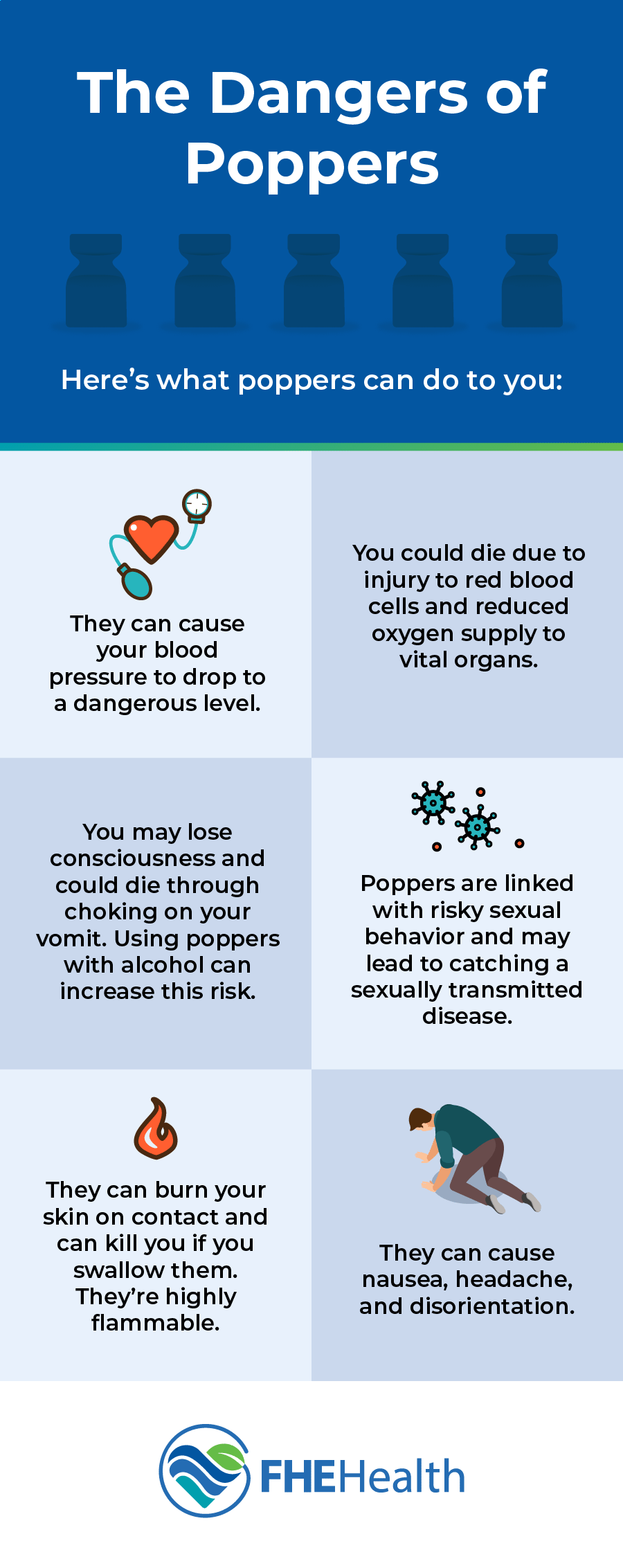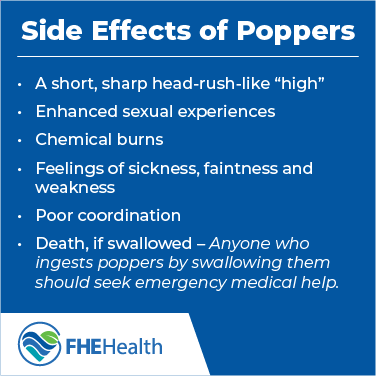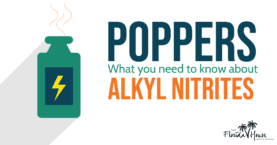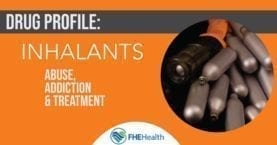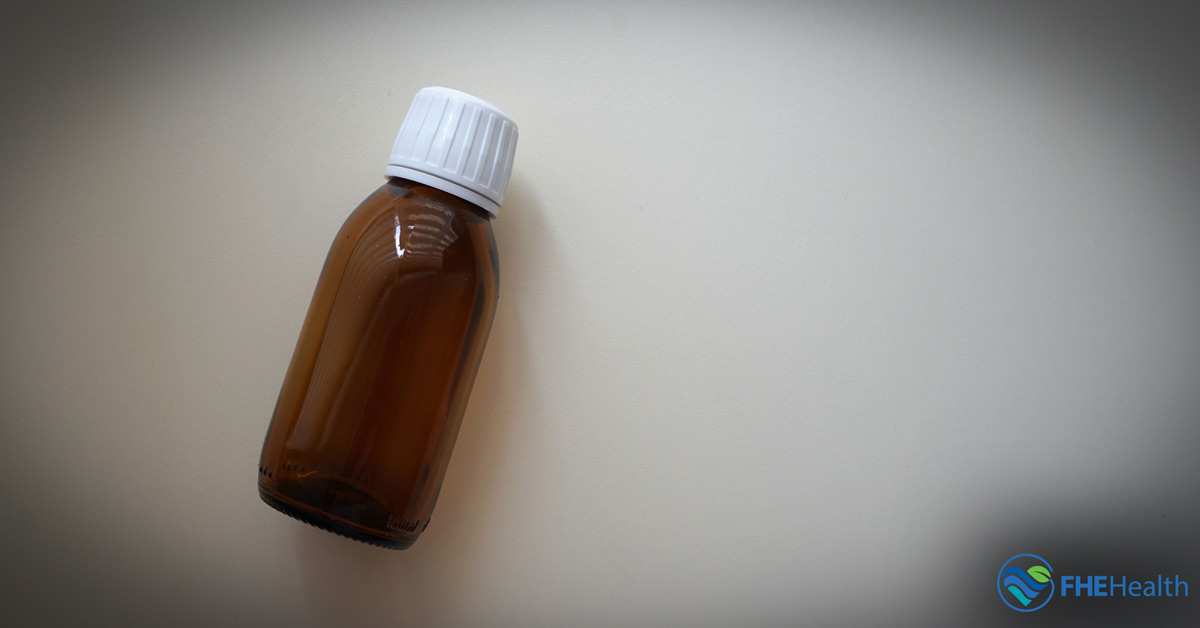
See more details about Poppers, or Alkyl Nitrites, in our new blog.
It is widely known that huffing is really bad for you. Like really bad. Inhaling organic solvents or propellants to get high is not new, but these new products being sold as “poppers” and distributed throughout the U.S., primarily to men who have sex with men, actually contain harmful solvents and propellants and pose the same health risks as huffing.
What Are Poppers?
Poppers are chemicals known as “alkyl nitrites,” which produce a vapor that can be inhaled. These drugs are sold in small bottles under brand names like “Ram,” “Thrust,” and “Rock Hard.” A nitrite chemicals dilate the blood vessels, causing a drop in blood pressure and a corresponding “rush” of warm feelings and dizziness— not unlike an alcohol high. At the same time, somewhat paradoxically, a heart that is under the influence of poppers will speed up. (Read on to learn how poppers can place a considerable strain on the heart.)
In the past, when nitrites were used to treat angina (chest pain caused by reduced blood flow to the heart), they came in small glass capsules that were popped open and sniffed— hence the name “poppers.”
Why Are Poppers Used? Understanding the Appeal and Risks
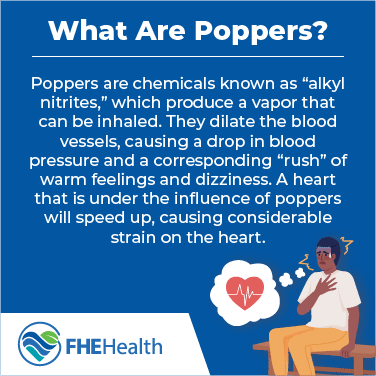 Today, poppers are most commonly used to enhance gay sex. The vasodilatory properties of these drugs open blood vessels, causing blood pressure to drop and inducing bodily relaxation. This, in turn, reportedly makes anal sex more comfortable. Another reason people use poppers during sex is to increase sexual sensations and intensify orgasm.
Today, poppers are most commonly used to enhance gay sex. The vasodilatory properties of these drugs open blood vessels, causing blood pressure to drop and inducing bodily relaxation. This, in turn, reportedly makes anal sex more comfortable. Another reason people use poppers during sex is to increase sexual sensations and intensify orgasm.
The Link Between Poppers and Sex Addiction
While these are commonly the reasons reported for using poppers, they are insufficient at explaining why anyone would use a harmful and potentially deadly substance to enhance sexual pleasure. The answer to that question is one that research has shed light on a study in the August 2010 issue of the Archives of Sexual Behavior revealed a strong correlation between sex under the influence of club drugs (like poppers) and sex addiction. This correlation is stronger among gay men, who suffer from sex addiction at higher rates than the heterosexual population.
The takeaway? That someone may be using poppers, despite the drugs’ harmful effects, because they have a sex addiction. The good news is that, like other process addictions, sex addiction can be effectively treated and managed.
Mental Health Factors Contributing to Poppers Use
A sex addiction may not be the only reason why someone is using poppers, however. Another reason could very well be to self-medicate or cope with one of the following mental health problems, according to other research:
- Mood disorders
- Anxiety disorders, especially social phobia
- Childhood attention-deficit/hyperactivity disorder
- Obsessive-compulsive disorder (OCD)
It’s also not uncommon for one of the above disorders to co-occur with sex addiction.
Seeking Help and Treatment Options
If you suspect that you or a loved one is using poppers because of a sex addiction and/or one of the above mental health conditions, we want you to know that there is help— and that with dual diagnosis and medically integrated treatment, recovery is possible. Start the journey towards a happier and healthier you today.
